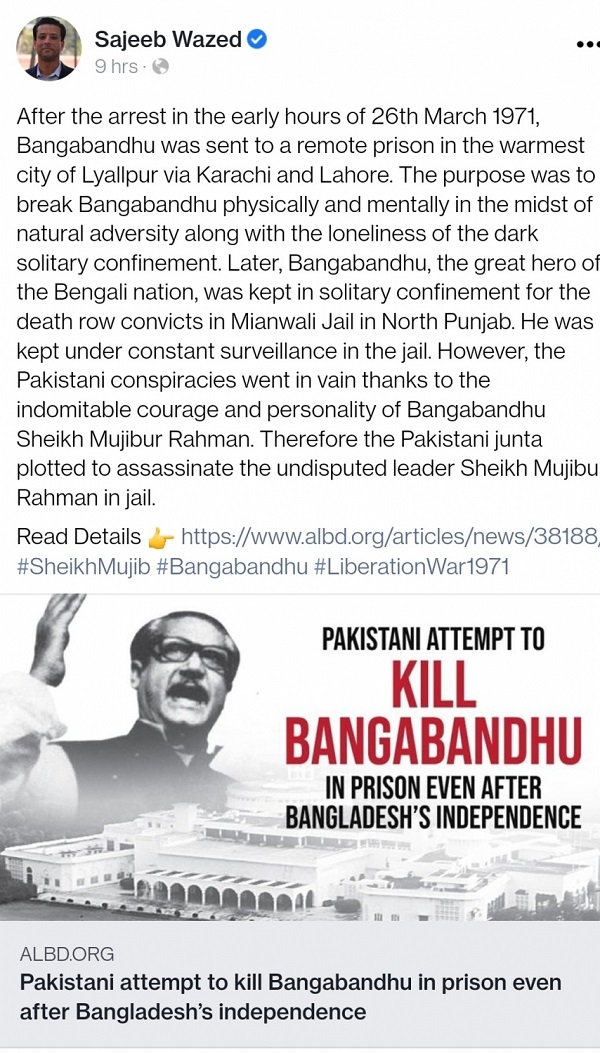
Dhaka, (Asian independent) Bangabandhu Sheikh Mujibur Rahmans grandson Sajeeb Wazed Joy has lashed out at the former Pakistani leaders for trying to kill the ‘Father of the Nation’ while he was a prison in 1971.
In an article posted on the website of the ruling Awami league on Thursday, he said: “After the arrest in the early hours of 26th March 1971, Bangabandhu was sent to a remote prison in the warmest city of Lyallpur via Karachi and Lahore. The purpose was to break Bangabandhu physically and mentally in the midst of natural adversity along with the loneliness of the dark solitary confinement. Later, Bangabandhu, the great hero of the Bengali nation, was kept in solitary confinement for the death row convicts in Mianwali Jail in North Punjab. He was kept under constant surveillance in the jail. However, the Pakistani conspiracies went in vain thanks to the indomitable courage and personality of Bangabandhu Sheikh Mujibur Rahman. Therefore the Pakistani junta plotted to assassinate the undisputed leader Sheikh Mujibur Rahman in jail.”
Wazed, who is the son of Prime Minister Sheikh Hasina, went on to say in the article that this was the not first time that there was a plot to assassinate his grandfather.
“In the early hours of March 26, Bangabandhu declared independence through wireless. This declaration of independence of Bangladesh was aired in the international media. Meanwhile, a special commando force went and shoot at Bangabandhu’s residence on Dhanmondi Road No. 32 before he was arrested and taken away,” he added.
Wazed further added that Bangabandhu was shifted from one to another jail in Pakistan several times during the course of the Liberation War.
“Apart from killing attempts at Mianwali, Faisalabad and Sahiwal, there was another conspiracy to kill Bangabandhu in a solitary confinement cell in the dark cell of Lyallpur Jail in North Punjab, about 150 miles from Rawalpindi,” he said, adding that “the conspiracy continued in the name of a secret trial”.
Later, “under the pressure of the new government of independent Bangladesh and world leaders, Pakistan was finally forced to release Bangabandhu on January 8, 1972”, Wazed says in his article.
“Through London on January 9, Bangabandhu set foot in an independent Bangladesh on January 10.
“Thus the return of Bangabandhu to his home fulfilled the meaning of the independence of the Bengali nation.”







